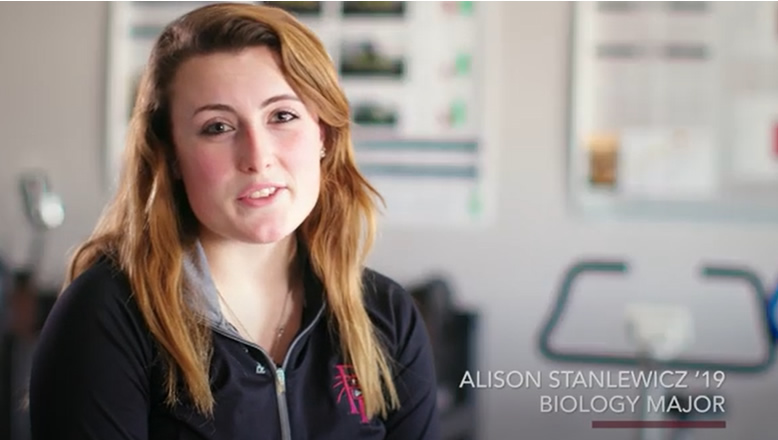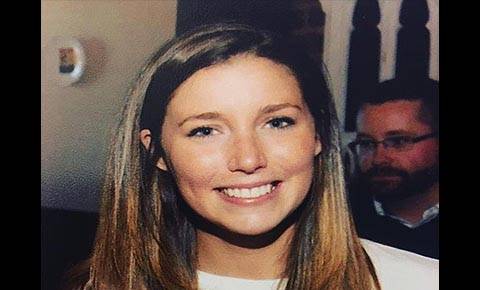Biology
Degree Awarded
Bachelor of Arts (B.A.), Bachelor of Science (B.S.), Undergraduate Minor, Certificate in Exercise Physiology
Program Delivery
On-Campus
Locations Available
Rindge, New Hampshire
Your major in Biology gives you the tools to study the living organisms and ecosystems that drive many of the most pressing issues of our time. In a world of changing climate, expanding (and aging) populations, and shrinking natural resources, understanding the living beings on our planet has never been more critical. With your B.S. or B.A. in Biology, you can seek work in laboratory, classroom, office, or field environments and look forward to consistent job and salary growth.
Request Information
What do Biology students Learn?
You will learn core concepts in biology, chemistry and physics, as well as scientific methods and experimental design. You will master field and laboratory techniques, as well as scientific writing and communication skills.
- BI101 Biology I (laboratory)
- BI102 Biology II (laboratory)
- CH101 General Chemistry I (laboratory)
- CH102 General Chemistry II (laboratory)
- GLE101 First Year Inquiry Seminar
- GLE110 First Year Composition I
- Math First of two required mathematics courses
- _______ Additional Major, GLE and/or Free Elective(s)
- BI211 Genetics (laboratory)
- BI241 Evolutionary Biology OR
- BI218 Ecology (laboratory)
- BI215 Biology and Health Sciences Seminar
- BI___ Biology Elective (Bachelor of Science Track)
- CH211 Organic Chemistry I
- (Bachelor of Science Track)
- CH212 Organic Chemistry II
- GLE220 First Year Composition II
- _______ Additional Major, GLE and/or Free Elective(s)
- BI235 Biology Elective or
- BI319 Cellular Biology (laboratory)
- BI235 Microbiology (laboratory)
- PH101 General Physics I (Bachelor of Science Track)
- PH102 General Physics II (Bachelor of Science Track)
- _______ Additional Major, GLE and/or Free Elective(s)
- BI460 Internship in Biology/Health Sciences or
- BI480 Senior Seminar in Biology/Health Sciences or
- Invited Senior Research
- _______ Additional Major, GLE and/or Free Elective(s)
*Please refer to the Academic Catalog for full listing of elective options
- BI217 Tropical Forest Ecology
- BI231 Animal Behavior
- BI235 Human Health and Nutrition
- BI250 Introduction to Plant Biology
- BI260 Anatomy and Physiology I
- BI261 Anatomy and Physiology II
- BI312 Vertebrate Biology
- BI319 Cellular Biology
- BI325 Microbiology
- BI326 Parasitology
- BI327 Principles of Immunology
- BI337 Advanced Nutrition
- BI351 Endocrinology
- BI370 Medical Terminology and Health Systems
- BI375 Mammalogy
- BI400 Kinesiology
- BI402 Physiology of Exercise
- BI403 Assessment and Prescription of Fitness
- BI404 Strength and Conditioning
- BI430 Forest Ecology
- ES320 Wildlife Ecology and Protection
- ES342 Wildlife Conservation and Management
- PS304 Introduction to Neuroscience
- PS430 Introduction to Psychopharmacology
Certificate in Exercise Physiology
The Certificate in Exercise Physiology is a collection of courses geared at educating the student towards a career as an Exercise Physiologist. These courses include:
- BI260 Anatomy and Physiology I
- BI261 Anatomy and Physiology II
- BI370 Medical Terminology and Health Systems
- BI400 Kinesiology
- BI402 Exercise Physiology
- BI403 Assessment and Prescription of Fitness
- BI404 Strength and Conditioning
- BI405 Clinical Exercise Physiology
Upon competition of this certificate, along with an undergraduate degree, students would meet the prerequisites established by the American College of Sports Medicine to sit for the Certification in Exercise Physiology. Sitting for the ACSM’s Certification is above and beyond the expectations of our certificate program however a viable option after completion. If you do choose the path of certification through the ASCM, it is a nationally recognized and a required achievement for employment in many clinical and health related setting. Typical areas of employment would include cardiac rehabilitation centers and fitness facilities.
What Makes Our Biology Program Different?
You can gain valuable experience through opportunities at Franklin Pierce to:
- Work on biomedical research funded by the National Institutes of Health
- Conduct environmental fieldwork on our 1,200-acre Rindge campus with woods, fields, ponds, trails, wetlands and wildlife
- Study tropical forest ecology in Costa Rica
- Participate in Health Sciences Club or Environmental Club
- Participate in Sigma Zeta, the National Science and Mathematics Honor Society

Alison Stanlewicz '19 discusses her research project involving exercise physiology.
Who should Study Biology?
You’ll find this major a good fit if you have or want to develop the ability to:
- Conduct and clearly explain scientific research
- Plan and execute biological experiments
- Think critically, analyze and interpret data
- Work independently and collaborate with teams
CONTACT the admissions team
(800) 437-0048
admissions@franklinpierce.edu
Monday-Friday, 8 a.m.-4:30 p.m.


